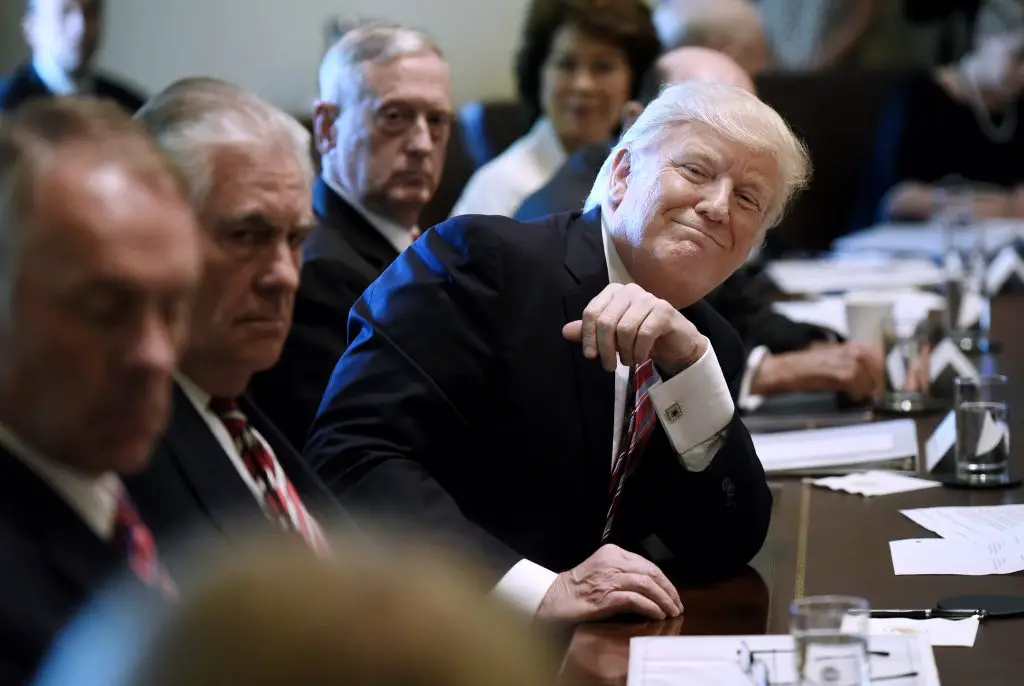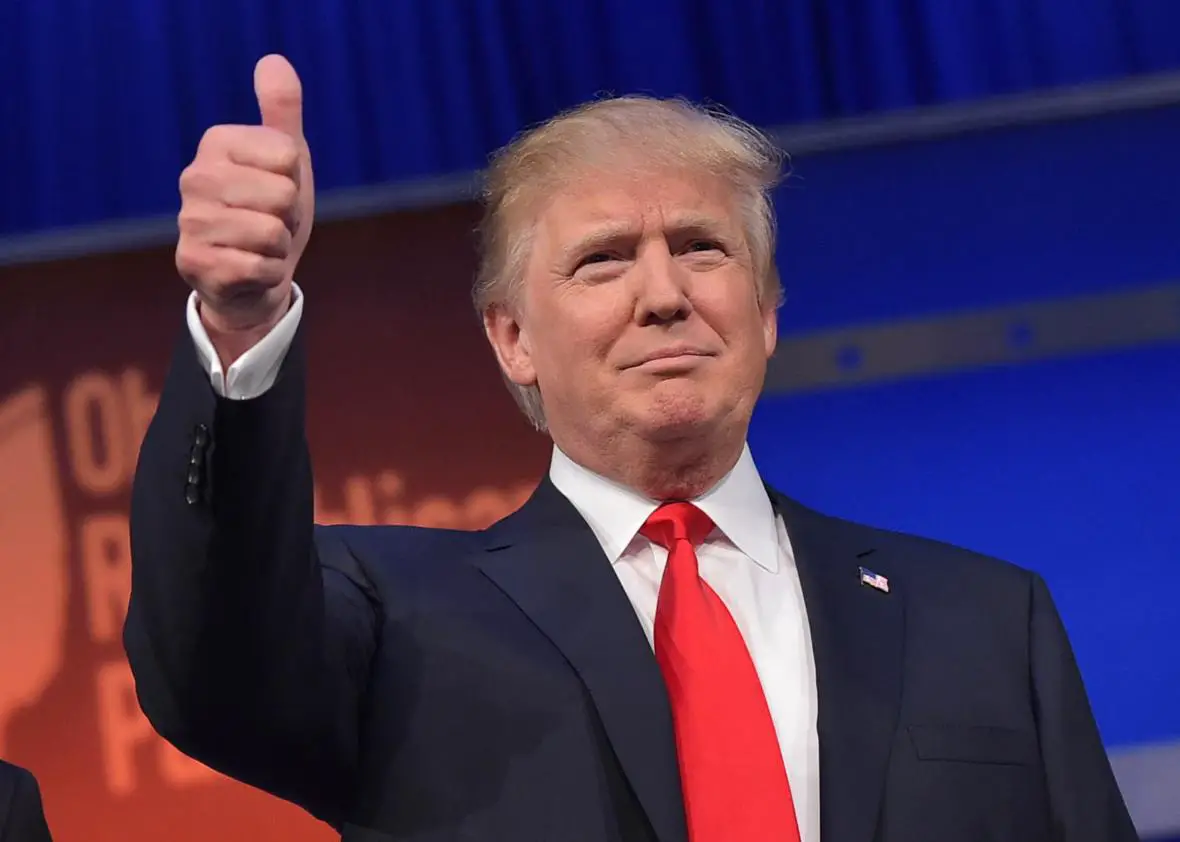How to Shame the Shameless
Instead of listing all the things Trump does wrong, let’s talk about what motivates him to do so.
By Gaige Davila, University of Texas at San Antonio
President Donald Trump lives in breaking news.
Writers, journalists and comedians are fully rationed, replenishing their material with every morning’s newspaper. Americans are being graced with exceptional political commentary and satire, but what has changed?
If you measure the resistance of Trump’s administration on their awareness to their scandals, then, sure, news and entertainment media are revolutionaries in a sense. Perhaps, for now, it’s hard to talk about anything else. Ideally, this much coverage would have brought Trump down, but he’s become a cash cow.
Trump’s day to day has been turned into an SNL skit, a damning editorial or is debated on cable news all fucking day. All the attention is going to Trump, which is exactly what he wants. Press coverage, good and bad, have become synonymous with the ratings he’s so familiar with. How does any of this criticism not faze him? Is a different approach needed? I say, no shit.

Every criticism questions his ethics, but Trump is shameless. Approaching someone, or an entire administration, with how unethical they are, when they’re well aware of how unethical they are, will fail to instigate change. What the world is facing is the apex of a toxic political culture, one that’s lost hope for a system that works, where the majority have become the minority by difference in wealth, rationality is seen as an attempt to cover up the “truth” and violence is the solution to violence (terrorism).
Instead of attempting to show Trump what’s wrong with, well, everything he’s done, writers, activists, journalists and entertainment media should be paying attention to what causes a Trump presidency. Philosophers, authoritarian regimes and even Hunter S. fucking Thompson have described the conditions that would lead to a reign like Trump’s. Though the complications surrounding this presidency couldn’t have been predicted, there’s a core of conditions that can be seen today. For one, as has been pointed out before, the majority of Trump’s support comes from people who got screwed by the economy.
Trade, manual and even service jobs are succumbing to automation, and there’s little to stop profit-driven companies to cut costs they deem unnecessary (like employee wages). Those who held these jobs have been losing them for a while, and the blame gets thrown to “the other.” This narrative of immigrants and their native-born families as economy killers isn’t new, nor is it something that only happens in the United States. Some undocumented immigrants, however, do take jobs over American citizens, usually for lower wages. That is where the attention should be directed—an economic system that sees people as the difference between one profit and another.
Immigrants are also scapegoated as destroyers of American values. These “destroyers,” as of the last few decades, have been people from Arab nations, specifically believers of Islam. Trump supporters continue pushing for more aggressive responses to terrorist attacks. Trump’s promises to annihilate ISIS and proposal of a “travel ban” appealed to a base that had, since September 11, 2001, wanted revenge against people who killed in the name of Islam.
Again, this is not unique to the U.S. During France’s presidential elections, Marine Le Pen’s abrasive views of Islam attracted a base of voters who were increasingly frustrated over the handling of terrorist attacks. Though these concerns are well founded, the propaganda and generalizations of Islamic culture are not. Increased terrorism-prevention policies sacrifice rights as a cost for security, a mostly bi-partisan issue that Americans wanted to be rid of. Trump, posing as the final solution to stop terror, swallowed these votes.
Fear of “the other” is deeply ingrained in the American psyche. This vulnerability has been taken advantage of by power. Rather than be shocked by its reach, we should question it: Why do we have to sacrifice rights for safety? Why are we continuing to persecute Muslims, or people who “look Muslim,” when nearly all condemn terrorism? Why do business interests of the United States correlate with the countries they war with? And so on.
I’m not saying that attention has not been directed to anything I’ve referenced. Rather, I’m calling for attention to be taken away from Trump’s ethics. The man is immoral, and no amount accountability will be torn out of him. Continuing to cast Trump as a monster, detailing his every move and condemning his actions is necessary, but only as a point of reference. Trump’s face is now Big Brother-like in its continued presence, desensitizing any push to remove him from office.
I, too, am guilty of pushing this all away, hoping Trump will soon fuck up so hard that he’s impeached by the next morning. Even those who are immediately affected by his actions are losing hope in trying to fight against him. However, there has been progress, and it’s by the same people who I said were doing it all wrong.
Investigations into Trump’s contact with the Russian government, unethical business ties and absurd policy proposals are all by journalists looking at a government that so many believed would never allow this presidency to happen.
Late night show hosts like Stephen Colbert and Seth Meyers are exposing this administration’s absurdity satirically, getting people to pay attention to pay politics who otherwise wouldn’t. John Oliver, host of “Last Week Tonight,” has provided regular, in-depth coverage to the systems Trump takes advantage of. Though having every show like “Last Week Tonight” would stagnate television, it’s a sound model on how satire can explicate political culture.
These shows are not enough, however. America has a clear danger to its democracy, and some of Trump’s damage may be irreversible. The systems that have broken so many still remain and will continue if more attention is given to Trump. If, and when, this all ends, Americans must remember the aftershock. Several precedents have been set, whether intentionally or not, and America’s current circus of a political culture must not continue after the ringleader is gone.

















